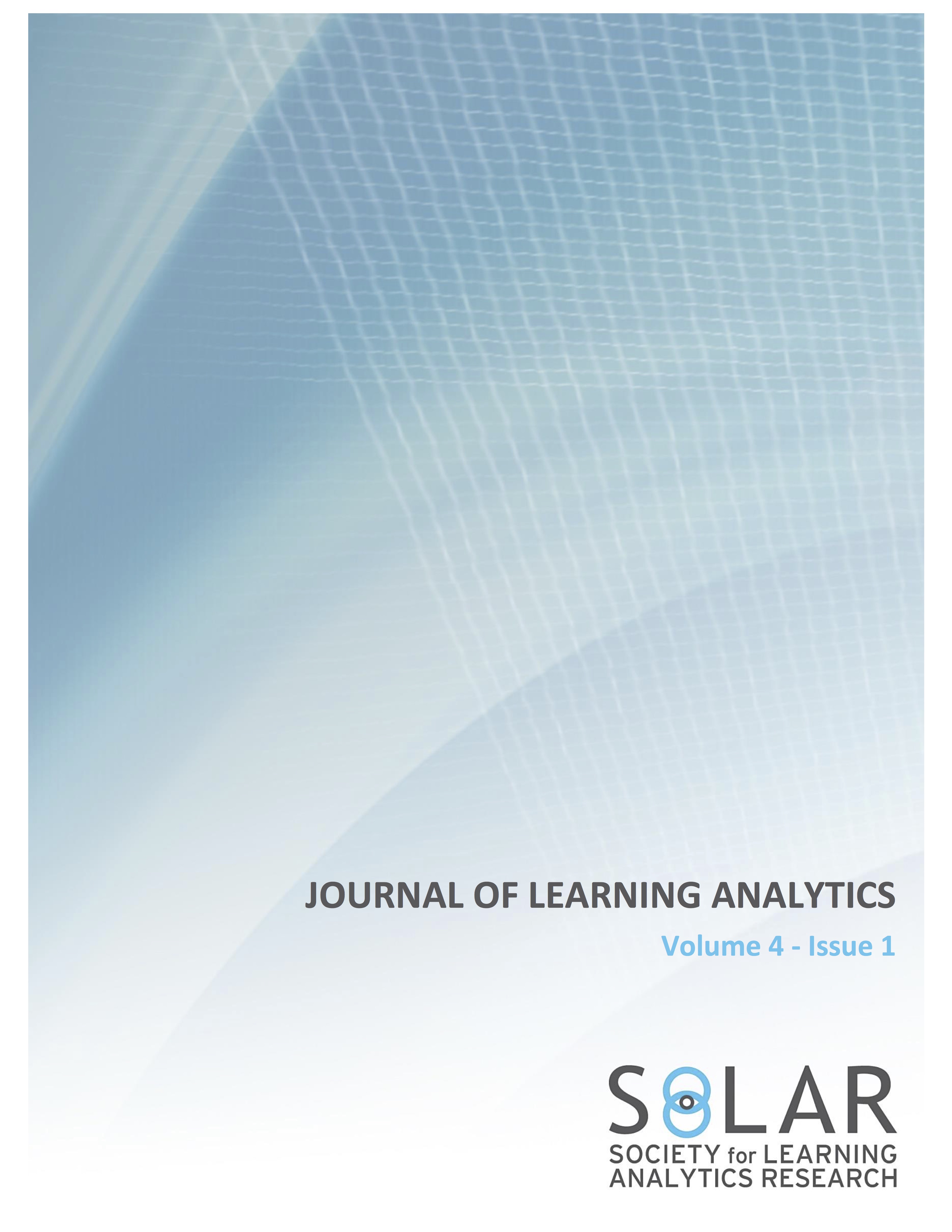Role Modelling in MOOC Discussion Forums
DOI:
https://doi.org/10.18608/jla.2017.41.6Keywords:
MOOCs, Discussion Forums, Social Network Analysis, Temporal dataAbstract
To further develop rich and expressive ways of modelling roles of contributors in discussion forums of massive open online courses (MOOCs), we analyse a networks of forum users based on the relations of information-giving and information seeking. Specific connection patterns that appear in the information exchange networks of forum users are used to characterize user roles in a social context. Additionally, semantic roles are derived by identifying thematic areas in which an actor seeks for information (problem areas) and the areas of interest in which an actor provides information to others (areas of expertise). The interplay of social and semantic roles is analysed using a socio-semantic blockmodelling approach. The results show that social and semantic roles are not strongly interdependent. Here, the methodological contribution is in combining traditional blockmodelling with semantic information to characterize participant roles. Furthermore, we have applied sequential pattern analysis techniques to analyze the posting activity of users over time in terms of categories of cognitive engagement derived from the ICAP framework of Chi & Wylie (2014). A combination of the different approaches and results reveals that user roles derived from the analysis of engagement patterns are strongly related to socio-semantic user roles.
Downloads
Published
How to Cite
Issue
Section
License
Copyright (c) 2017 Journal of Learning Analytics

This work is licensed under a Creative Commons Attribution-NonCommercial-NoDerivatives 4.0 International License.
TEST


